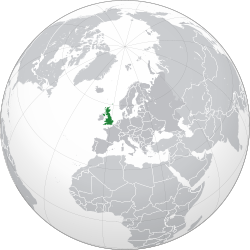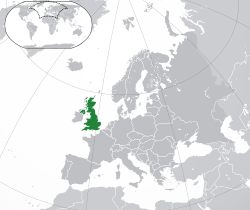Term: United Kingdom
**Historical Background**:
– Acts of Union in 1707 and 1800 united England, Scotland, and Ireland to form the UK.
– Annexations, unions, and separations shaped the UK’s history.
– Influence globally seen in language, culture, and politics.
– Treaty of Union in 1707 united England and Scotland.
– Most of Ireland seceded in 1922, creating Northern Ireland.
**Geography and Demographics**:
– UK located in Northwestern Europe, surrounded by the Atlantic Ocean and North Sea.
– Total area of UK is 94,354 square miles with a population of nearly 67.6 million in 2022.
– Scotland is the most mountainous constituent country, with the Highlands being rugged.
– Wales is mostly mountainous, with Snowdonia having the highest peak.
– Northern Ireland has mostly hilly terrain, with notable lakes and islands.
**Government, Economy, and International Relations**:
– Constitutional monarchy and parliamentary democracy with three distinct jurisdictions.
– London serves as the capital and largest city.
– UK ranks sixth globally in nominal GDP and fourth in military expenditure.
– Member of various international organizations like the UN Security Council, Commonwealth of Nations, G7, and NATO.
– Recognized nuclear state and ranked ninth by purchasing power parity.
**Political and Religious Evolution**:
– Development of the British constitution based on constitutional monarchy and parliamentary system.
– Religious and political changes, including the English Reformation and formation of the Kingdom of Great Britain.
– Various kingdoms formed in the UK’s history, such as England, Scotland, and Ireland.
– Shifts in governance, including the emergence of the Labour Party and suffragette movements.
– Policies and reforms during different eras, such as the Victorian Era and the post-World War II period.
**Modern Developments and Challenges**:
– Recent events like the Scottish independence referendum in 2014 and Brexit in 2016.
– UK’s exit from the EU in 2020 and subsequent agreements like the EU-UK Trade and Cooperation Agreement in 2021.
– Impact of the COVID-19 pandemic on the UK’s economy and society.
– UK’s role in global affairs, including support for the US in the war on terror and military involvement in Afghanistan and Iraq.
– Internal challenges like austerity measures, social disruptions, and changes in governance.
The United Kingdom of Great Britain and Northern Ireland, commonly known as the United Kingdom (UK) or Britain, is a country in Northwestern Europe, off the north-western coast of the continental mainland. It comprises England, Scotland, Wales, and Northern Ireland. It includes the island of Great Britain, the north-eastern part of the island of Ireland, and most of the smaller islands within the British Isles. Northern Ireland shares a land border with the Republic of Ireland; otherwise, the United Kingdom is surrounded by the Atlantic Ocean, the North Sea, the English Channel, the Celtic Sea, and the Irish Sea. The total area of the United Kingdom is 94,354 square miles (244,376 km2), with an estimated population of nearly 67.6 million people in 2022.
United Kingdom of Great Britain and Northern Ireland | |
|---|---|
| Anthem: "God Save the King" | |
Coats of arms: Used in relation to Scotland (right) and elsewhere (left) | |
Location of the United Kingdom (dark green) in Europe (dark grey) | |
| Capital and largest city | London 51°30′N 0°7′W / 51.500°N 0.117°W |
| Official language and national language | |
| Regional and minority languages | |
| Ethnic groups (2011) | |
| Demonym(s) |
|
| Government | Unitary parliamentary constitutional monarchy |
• Monarch | Charles III |
| Rishi Sunak | |
| Legislature | Parliament |
| House of Lords | |
| House of Commons | |
| Formation | |
| 1535 and 1542 | |
| 24 March 1603 | |
| 22 July 1706 | |
| 1 May 1707 | |
| 1 January 1801 | |
| 6 December 1922 | |
| Area | |
• Total | 244,376 km2 (94,354 sq mi) (78th) |
• Land | 242,741 km2 (93,723 sq mi) |
| Population | |
• 2022 estimate | |
• 2011 census | 63,182,178 |
• Density | 279/km2 (722.6/sq mi) (51st) |
| GDP (PPP) | 2023 estimate |
• Total | |
• Per capita | |
| GDP (nominal) | 2023 estimate |
• Total | |
• Per capita | |
| Gini (2021) | medium |
| HDI (2022) | very high (15th) |
| Currency | Pound sterling (GBP) |
| Time zone | UTC+0 (GMT) |
• Summer (DST) | UTC+1 (BST) |
| Date format |
|
| Driving side | left |
| Calling code | +44 |
| ISO 3166 code | GB |
| Internet TLD | .uk |
The United Kingdom has evolved from a series of annexations, unions and separations of constituent countries over several hundred years. The Treaty of Union between the Kingdom of England (which included Wales) and the Kingdom of Scotland in 1707 resulted in their unification to become the Kingdom of Great Britain. Its union in 1801 with the Kingdom of Ireland created the United Kingdom of Great Britain and Ireland. Most of Ireland seceded from the UK in 1922, thus creating the terrority of Northern Ireland and the present United Kingdom of Great Britain and Northern Ireland, which formally adopted its name in 1927. The nearby Isle of Man, Guernsey and Jersey are not part of the UK, being Crown Dependencies, but the British government is responsible for their defence and international representation.
The UK became the first industrialised country and was the world's foremost power for the majority of the 19th and early 20th centuries, particularly during the "Pax Britannica" between 1815 and 1914. The British Empire, at its height in the 1920s, encompassed almost a quarter of the world's landmass and population, and was the largest empire in history; however, its involvement in the First World War and the Second World War damaged Britain's economic power and a global wave of decolonisation led to the independence of most British colonies. British influence can be observed in the legal and political systems of many of its former colonies, and the UK's culture remains globally influential, particularly in language, literature, music and sport. English is the world's most widely spoken language and the third-most spoken native language.
The United Kingdom is a constitutional monarchy and parliamentary democracy. Due to areas retaining existing legal systems after joining, the UK has three distinct jurisdictions; England and Wales, Scotland and Northern Ireland. The capital, therefore the capital of England which is not devolved as a whole, and largest city of the United Kingdom is London. Other major cities include Birmingham, Liverpool, Nottingham, Sheffield, Bristol, Glasgow and Leicester. Scotland, Wales and Northern Ireland's national capital cities are Edinburgh, Cardiff and Belfast, respectively. The nations, since 1998, have their own devolved governments, legislatures and varying other powers.
The UK has the world's sixth-largest economy by nominal gross domestic product (GDP), and the ninth-largest by purchasing power parity. It is a recognised nuclear state and is ranked fourth globally in military expenditure. The UK has been a permanent member of the UN Security Council since its first session in 1946. It is a member of the Commonwealth of Nations, the Council of Europe, the G7, the OECD, NATO, the Five Eyes, AUKUS and the CPTPP.




